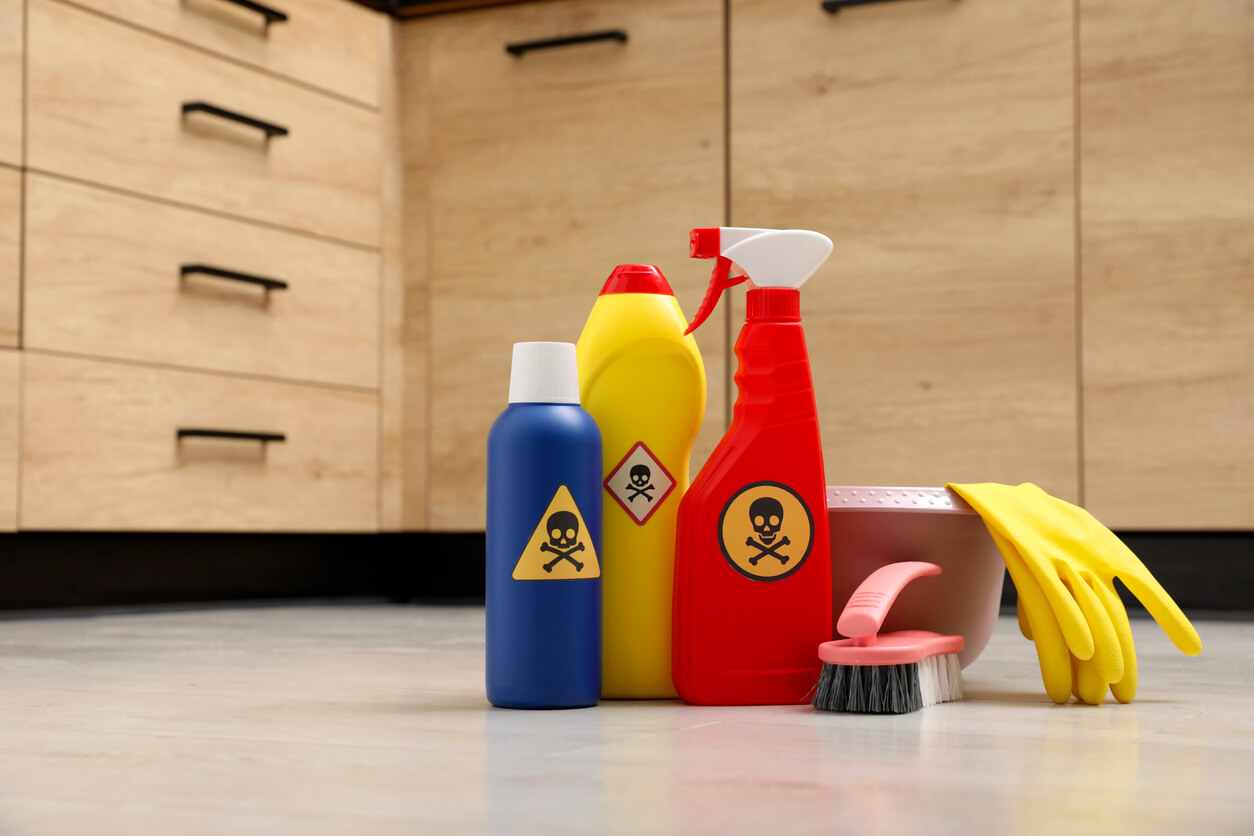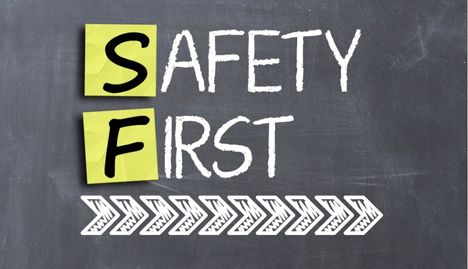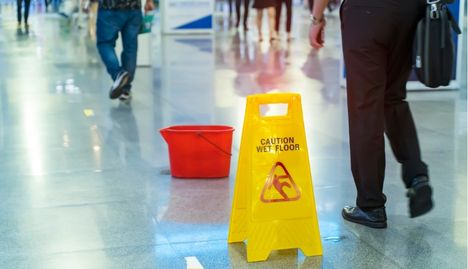Are Cleaning Chemicals Harmful?

Cleaning products may contain chemicals, and all chemicals can be harmful if used incorrectly. Some chemicals in cleaning products can be corrosive or inflammable, can irritate skin and eyes, cause respiratory problems or be harmful in other ways. Anyone with respiratory illnesses or existing skin problems will be particularly at risk.
We do need to clean so the best way to avoid problems is to always read the label and instructions for all cleaning products and to follow the recommendations exactly. That way, cleaning products will always be used safely and will not cause any problems.
Common Chemicals in Cleaning Products
Many cleaning products contain volatile organic compounds (VOCs) and other toxic substances that can be harmful if not used carefully. These products include:
- dishwashing detergents that include phosphate, which can cause skin irritation and burns; detergents for hand washing are milder than those for dishwashers but still need care in use
- oven cleaners containing sodium hydroxide or potassium hydroxide, which can be highly corrosive and cause burns to skin and eyes, although non-toxic versions are available
- all-purpose cleaners that can include ammonia, sodium hydrochlorite, trisodium phosphate or ethylene glycol monobutyl acetate, which are poisonous if swallowed and can cause irritation to eyes, nose, throat and skin
- bleach (sodium hypochlorite) that can cause dermatitis and irritation to nose, eyes, throat and skin
- window and glass cleaners that also contain ammonia as well as isopropanol that can cause irritation and, if swallowed, serious issues
- antibacterial cleaners that contain a pesticide that can burn skin and irritate eyes
- laundry detergents that contain enzymes that irritate skin and eyes, cause nausea and other problems if swallowed and can result in asthma after prolonged use.
Avoiding Problems from Cleaning Chemicals
Cleaning chemicals are perfectly safe to use providing you follow a few simple guidelines:
- Wear protective equipment such as gloves and safety goggles to prevent contact with the skin and eyes.
- Always read the label and instructions before using any product and follow the directions exactly.
- Ensure good ventilation when cleaning so fumes do not build up.
- Keep people with allergies, respiratory illness or skin conditions out of the room until cleaning is complete and the atmosphere has cleared.
- Dilute products as instructed so they are not too concentrated.
- Never mix chemicals because this can lead to unexpected and dangerous reactions.
- Always keep products in their original containers and retain the instructions.
- Choose products without added fragrance.
- Although some products are labelled as being ‘green’, this does not mean they are safer to use, although often they are, so always check before using.
- Store chemicals safely, in locked cupboards or on high shelves that are out of the reach of children.
Cleaning chemicals are essential items to ensure cleanliness and good hygiene. But the wrong ones, used in the wrong way, can be dangerous so always use with care. We supply some cleaning materials with low chemical content and can provide advice in the selection and use of all our products. So, contact us if you need help.







